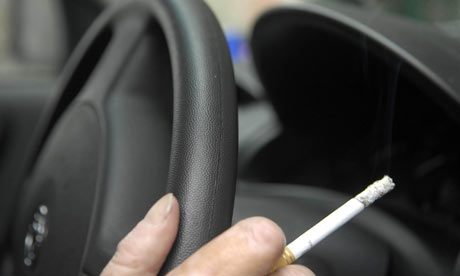
Is Andrew Lansley happy with anything about the way healthcare is organised and delivered? It seems not. First, he produced an NHS reform white paper to radically alter Nye Bevan's creation in ways that would horrify its founding father. Then, on Monday, he announced a major cull of health quangos. He also plans to bring a similarly unforgiving eye to public health – the messy, politically sensitive and sometimes fatal business of food, drink, drugs, smoking, infection, driving habits and sexual behaviour.
His speech on 7 July to the annual conference of the UK Faculty of Public Health (FPH) will be best remembered for his declaration that big food companies that stump up cash for the Change4Life healthy eating campaign will not face new laws controlling their marketing tactics or reformulating their products. Beyond those headlines, though, was a well-argued speech that set out how Lansley intends to rip up much of the approach to public health. As with the NHS, he insists that dissatisfaction with outcomes is his motivation, though a small state ideology does loom large. "We have to find a new approach – to think new thoughts. We need a paradigm shift," he said.
Central to his new approach will be a reliance on more people showing more personal responsibility: eating more healthily, exercising more, no longer drinking more than is good for them and so on.
Lansley wants to reduce the growing demand on the NHS, and points out that "nearly a quarter of the deaths in this country each year result, in part at least, from the consequences of unhealthy lifestyle". He has set himself a very big challenge. "We have to impact on demand. That means we have to change behaviour, and change people's relationships with each other, and with drugs, alcohol, tobacco and food," he said.
This is challenging, politically bold, stuff. Governments usually fight shy of saying too much about personal behaviour. But Lansley is right to raise issues such as the negative impact on health and wellbeing that has accompanied a decline in social and individual responsibility, and the extent to which people who end up sick can be the authors of their own misfortune. It would be better if those people who see this as a coded attack on poor people for their inferior health denied themselves the intellectual luxury of such a kneejerk, head-in-the-sand response.
Lansley is right, surely, to take issue with the message from the Foresight report on obesity that said biology and the environment are causing the growing crisis of excess weight; such denial of the role of human behaviour gives dangerously fat people an excuse for not even trying to change.
External forces explain much – poverty, nasty big food producers, poor housing, our car culture, irresponsible alcohol marketing – but are not always to blame for every ill. Some senior doctors think Lansley has a point. Whose fault is it when parents overfeed their children, causing them to become obese? Or smoke at home or in the car, potentially giving their offspring asthma?
Lansley is also right to say that: "Government cannot simply 'deliver' key policy outcomes to a disengaged and passive public. We cannot solve complex problems on our own – everyone has a role to play."
It will be fascinating to see how he intends to encourage the greater discipline he says is needed. By exhortation? Unlikely, given Lansley's rejection of "nannying and lecturing". Through financial incentives, such as those used by primary care trusts to get people to lose weight or take a chlamydia test? Or by threat, such as making access to public healthcare conditional on behaviour change or paying charges? Lansley's answer involves incentives such as pedometers, which increase users' physical activity; telling smokers their "lung age", which makes them more likely to quit; and his belief that "advertising social norms can snap people out of the fantasy that their drinking, smoking or eating habits are the same as everyone else's". Public health has just got personal.
Denis Campbell is the Guardian's health correspondent.

